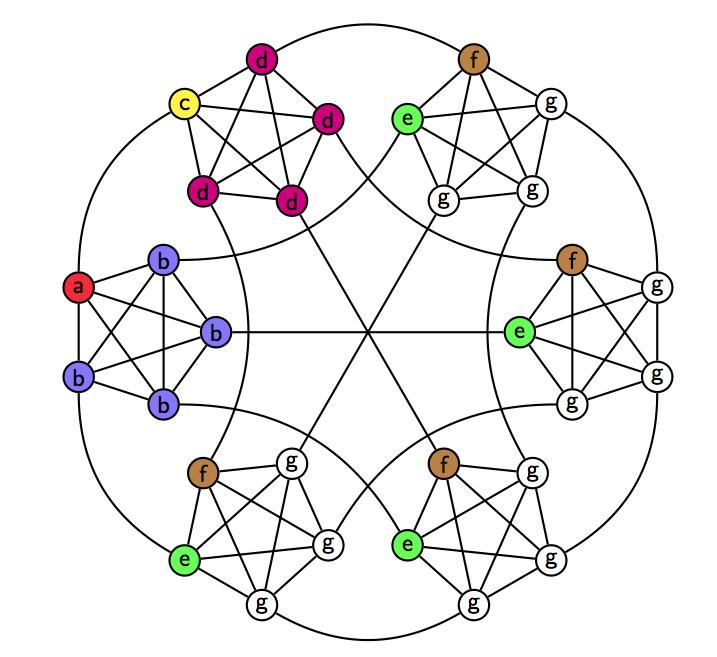Data structures influence speed of quantum search in unexpected ways

Quantum search slows unexpectedly on the highly connected data structure represented by this graph. Mathematical description: a 5-simplex with each vertex replaced with a complete graph of 5 vertices. Credit: Tom Wong
Using the quantum property of superposition, quantum computers will be able to find target items within large piles of data far faster than conventional computers ever could. But the speed of the search will likely depend on the structure of the data.
Such a search would proceed as a quantum particle jumps from one node of a connected set of data to another. Intuition says that the search would be fastest in a highly connected database.
“Say we are searching for a particular cafe in a city. How quickly we find it can depend on the layout of the city and the location of the cafe within the city. We might imagine that the more connected the city is, the easier it is to move around, and the easier it is to find the cafe,” said Tom Wong, one of the authors of a new analysis of the speed of such a search on databases with different structures and degrees of connectivity.
In a paper published by Physical Review Letters on March 20, David Meyer, a professor of mathematics at the University of California, San Diego, and Wong, who recently earned a Ph.D. in physics from UC San Diego and is now at the University of Latvia, showed that this logic doesn't hold for quantum computing.
“We turned an intuition on its head,” Wong said. “Searching with a quantum particle, we showed the opposite, giving an example where searching in a city with low connectivity yields fast search, and an example where searching in a city with high connectivity yields slow search. Thus the quantum world is much richer than our classical intuitions might lead us to believe.”
###
This work was partially supported by the Defense Advanced Research Projects Agency's Quantum Entanglement Science and Technology program, the Air Force Office of Scientific Research's Transformational Computing in Aerospace Science and Engineering Initiative, and the Achievement Awards for College Scientists Foundation.
Media Contact
All latest news from the category: Information Technology
Here you can find a summary of innovations in the fields of information and data processing and up-to-date developments on IT equipment and hardware.
This area covers topics such as IT services, IT architectures, IT management and telecommunications.
Newest articles

Properties of new materials for microchips
… can now be measured well. Reseachers of Delft University of Technology demonstrated measuring performance properties of ultrathin silicon membranes. Making ever smaller and more powerful chips requires new ultrathin…

Floating solar’s potential
… to support sustainable development by addressing climate, water, and energy goals holistically. A new study published this week in Nature Energy raises the potential for floating solar photovoltaics (FPV)…

Skyrmions move at record speeds
… a step towards the computing of the future. An international research team led by scientists from the CNRS1 has discovered that the magnetic nanobubbles2 known as skyrmions can be…





















